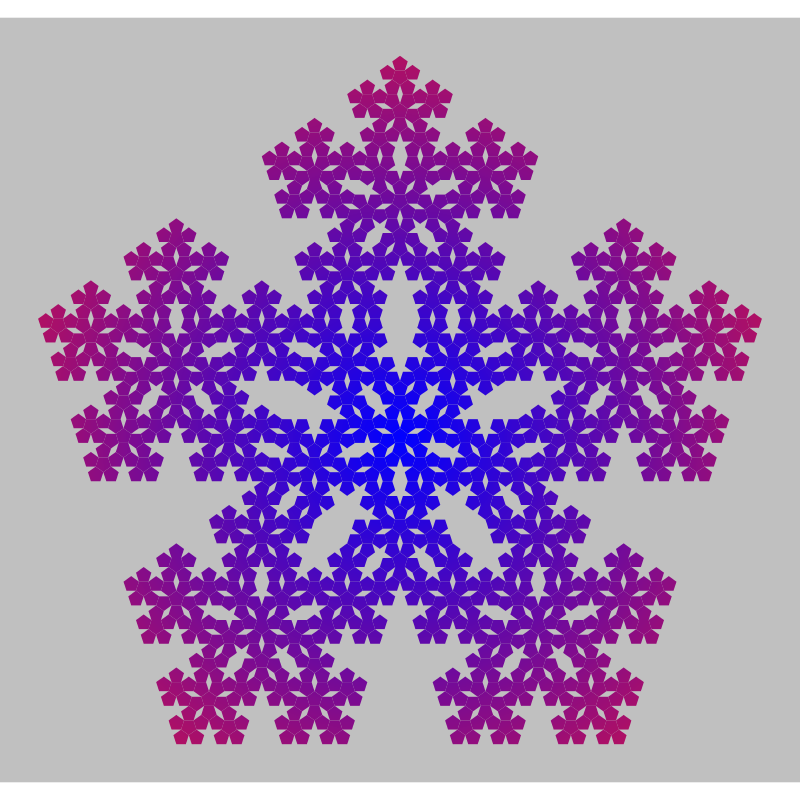Fractal construction with pentagons.

import Diagrams.Backend.SVG.CmdLine{-# LANGUAGE NoMonomorphismRestriction #-}
import Diagrams.PreludeA \(0\)-pentaflake is just a regular pentagon:
grad = defaultRG & _RG . rGradStops .~ mkStops [(blue,0,1), (crimson,1,1)]
& _RG . rGradRadius1 .~ 50pentaflake' 0 = regPoly 5 1 # lw noneAn \(n\)-pentaflake
is an \((n-1)\)-pentaflake surrounded by five more. The appends
function is useful here for positioning the five pentaflakes around
the central one.
pentaflake' n = appends
pCenter
(zip vs (repeat (rotateBy (1/2) pOutside)))
where vs = iterateN 5 (rotateBy (1/5))
. (if odd n then negated else id)
$ unitY
pCenter = pentaflake' (n-1)
pOutside = pCenter # opacity (1.7 / fromIntegral n)
pentaflake n = pentaflake' n # fillTexture grad # bgFrame 4 silverA \(4\)-pentaflake looks nice. Of course there’s an exponential blowup in the number of primitives, so generating higher-order pentaflakes can take a long time!
example = pentaflake 4main = mainWith (example :: Diagram B)